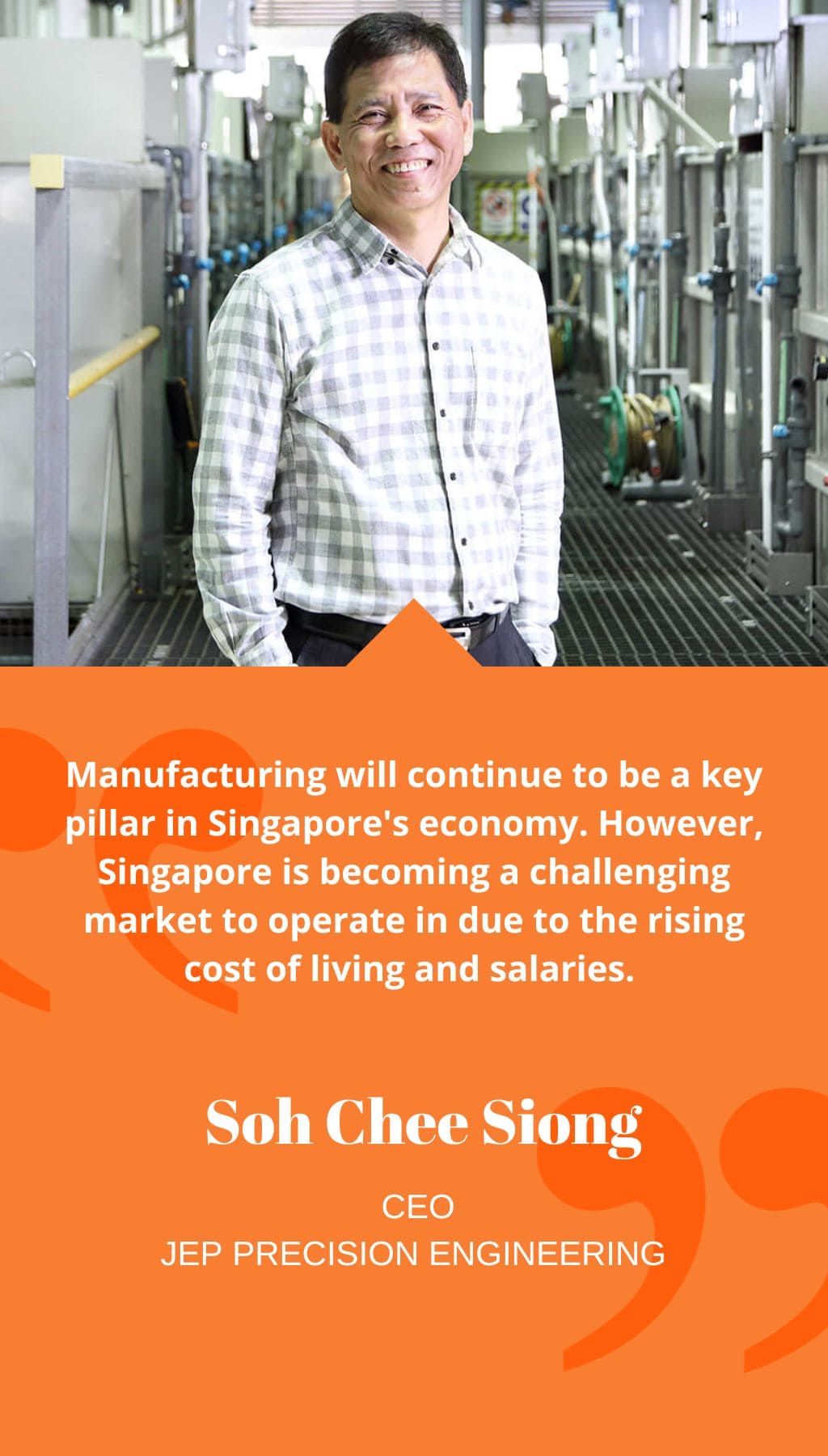
- Singapore | 5 April 2019

Could you please describe JEP Precision Engineering’s relationship with JEP Holdings and what services you offer?
JEP Holdings is a precision machining and engineering services solutions provider, primarily focused on the aerospace industry. JEP Precision Engineering is one of three subsidiaries under the group, which also includes Dolphin Engineering and JEP Industries. JEP Precision Engineering was acquired by JEP Holdings in 2007 and serves as the group’s main operating subsidiary. As an AS9100, OSHAS, and NADCAP accredited company, JEP Precision Engineering specializes in the production of high-level precision machine parts, with a focus on machining high-tensile materials such as inconel, titanium, and stainless steel. Over the past 25 years, we have established ourselves as a leading supplier of complete turnkey services for the aerospace, oil and gas, electronics, and machine tooling industries. Our services range from machining and engineering engine casings for the B777, A320, and B737 to producing landing gear components for the B787 and A350, as well as air management system components for the B787 Dreamliner.
Could you describe the new facility that JEP Precision Engineering has acquired and grown into?
With the rapid growth of the oil and gas and aerospace industries five years ago, we began to consider expanding our operations. While we explored various countries in the SEA region, we ultimately decided that Singapore was the most suitable place for us to grow. We approached the relevant government bodies who assisted us in securing an 18,502.10 sqm plot of land within Seletar Aerospace Park. We are currently in the process of moving and will be fully operational out of our new facility by the last quarter of 2017. This brand new facility will house a production space that is 80% larger than our current premises. Although the oil and gas industry is not expected to recover in the next year, the aerospace sector is still growing at a steady rate. In fact, Boeing has reported about 5-7 years of backlog in their orders and is always looking for suppliers to increase their capacity to be able to fulfill the demand.
What future trends do you expect to see in the aerospace industry and manufacturing companies in Singapore?
Manufacturing will continue to be a key pillar in Singapore’s economy. However, Singapore is becoming a challenging market to operate in due to the rising cost of living and salaries. Other Asia-Pacific countries with lower operating costs are able to offer much more competitive pricing. As such, the industry is moving towards a SMART factory concept, adopting automation and data-driven systems to stay competitive in today’s challenging environment. To remain competitive, JEP Precision Engineering is continuously looking for ways to improve and increase productivity while keeping our costs competitive. Another challenge we face is the tight labor market, which has a significant impact on most Singapore companies. To overcome this, we have a close working relationship with educational institutions and are involved in reviewing the curriculum for our industry to promote precision engineering and attract younger generations.
What are JEP Precision Engineering’s targets for the next three years?
For the next couple of years, JEP Precision Engineering plans to introduce new technology concepts and equipment into our production. We will start by implementing automation on a small scale, such as robotic unloading and loading. Once the pilot run is successful, we will look at implementation on a larger scale. We are installing two sets of flexible manufacturing systems (FMS), where two lines of five machines would be fully automated in our new facility. With this system in place, we will have less reliance on people, and machine utilization will be improved at the same time. Keeping up with technology is no longer a choice but our key to survival in today’s competitive market.














